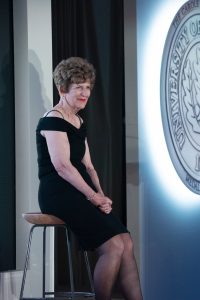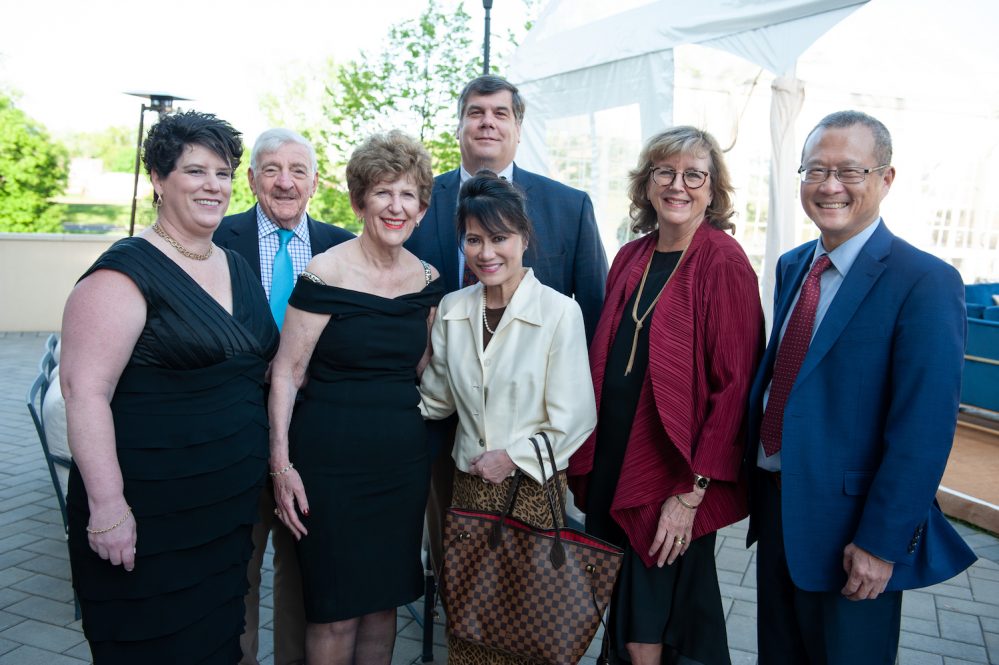UConn School of Medicine has received a gift of $7 million from the Neag Foundation to fund high-risk/high-reward research—research that has the potential to change medicine and improve human health globally.
The gift established the Carole and Ray Neag Innovation Professorship, which will support School of Medicine faculty specializing in transformational research, and the Carole and Ray Neag Innovative Research Awards, which will fund cutting-edge and high-risk research.
Dr. Bruce Liang, dean of UConn School of Medicine, says the Carole and Ray Neag Innovative Research Awards will enable scientists to pursue outside-the-box, potentially groundbreaking research that would not be supported by traditional sources of research funding.
“The Carole and Ray Neag Innovative Research Awards will give scientists the ability to test unconventional ideas without the preliminary data typically required for funding by some of the federal sources,” Liang says. “The rewards for this type of research can be unforeseen and unexpected. The research is aimed at being innovative and high risk but with the potential for high reward and impact greater than the more traditional investigation.”
These unconventional ideas could lead to new therapies and treatments for cardiovascular disease, cancer, viral infections, and more. They could also potentially help prepare for the possibility of future pandemics.
“A lot of innovation went into the COVID-19 vaccine, with the industry and academia collaborating to produce it,” Liang explains. “We want UConn Health to be a part of the research community that develops the next vaccine, the next cure, the next treatment.”
Another benefit to this type of research is the potential it unlocks for future funding, as it allows scientists to obtain the initial data required for traditional funding sources. When that data is promising, it paves the way for grant funding from the National Institute of Health and other sources.

Photos from the Carole and Ray Neag Medal of Honor Ceremony taken Saturday, May 18, 2019 in West Hartford. (Defining Studios for UConn Foundation)
“I am extremely thankful to Carole Neag and the Neag Foundation for providing this defining gift for the School of Medicine for innovation and research, which are critically important to the School of Medicine,” Liang says. “I am especially honored and touched by the generosity of the Neags, having known and benefited from their support for nearly 20 years.”
The Neags, UConn’s largest benefactors, have a long history of meaningful support that has transformed UConn’s health and education programs. The Neag School of Education and the Carole and Ray Neag Comprehensive Cancer Center are named in honor of Carole and her late husband Ray Neag ’56 (CLAS) ’01 (HON) in recognition of their generous lifetime giving.
“This endowment will benefit innovative researchers, scholars, and clinician scientists for many years into the future, part of Carole and Ray Neag’s enduring legacy at the School of Medicine,” says Liang.
“We are very grateful to Carole Neag and the Neag Foundation for providing this generous gift,” says Dr. Andrew Agwunobi, UConn’s interim president and the CEO of UConn Health. “This investment in UConn’s future fulfills a very special area of need that will continue to propel us forward as a prominent research university.”



